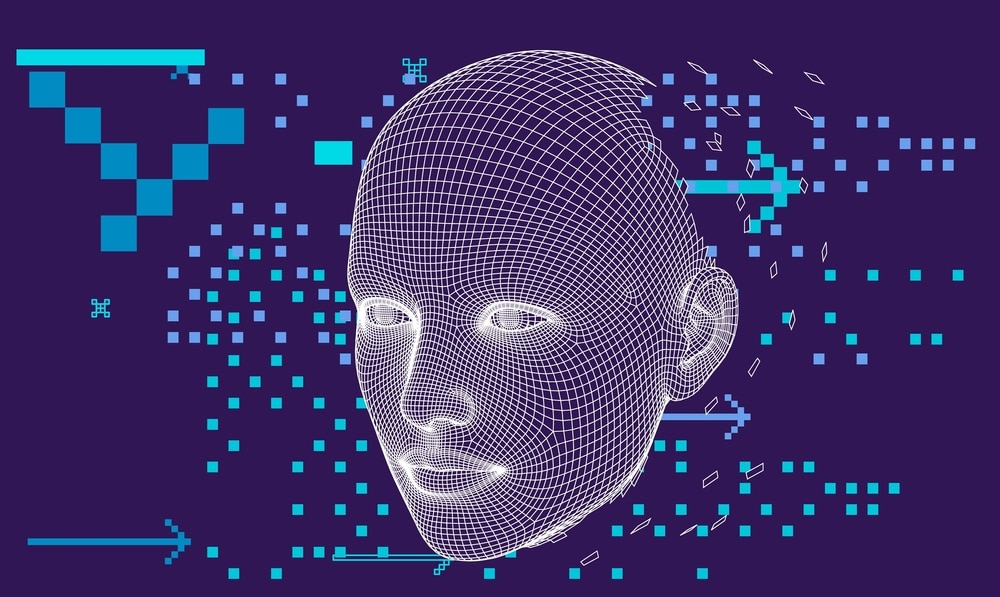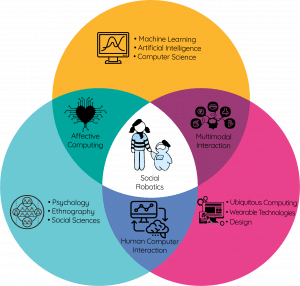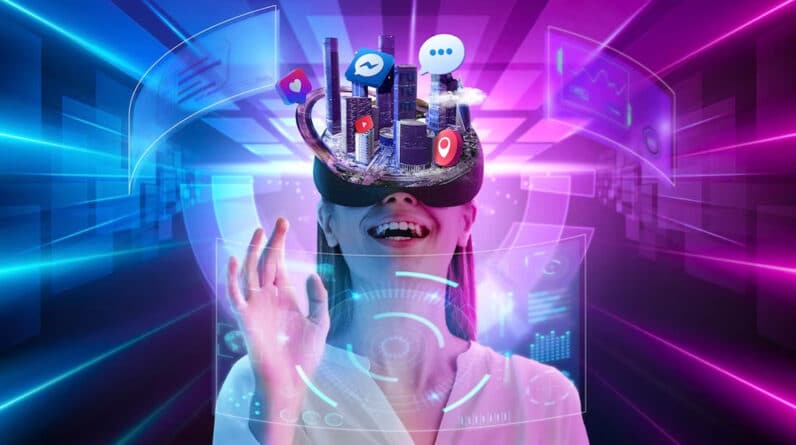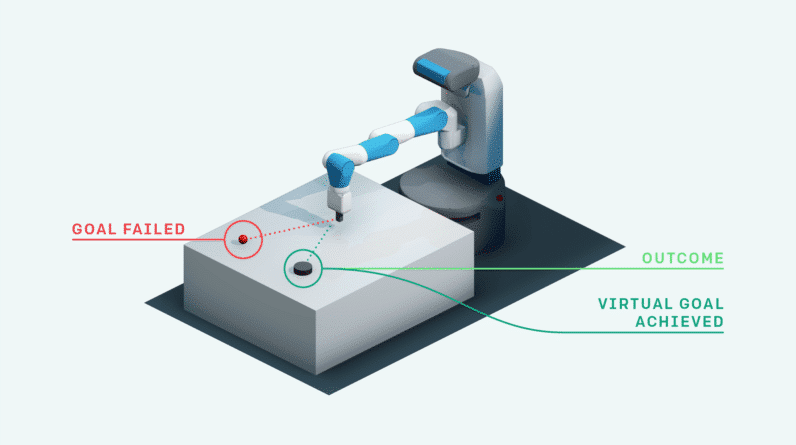In today’s rapidly evolving digital landscape, businesses are leveraging the power of artificial intelligence (AI) to create personalized user experiences across various industries. From e-commerce to healthcare, AI is revolutionizing the way we interact with technology by analyzing user data and adapting accordingly. By tailoring recommendations, content, and interfaces, AI is enhancing customer satisfaction, increasing engagement, and driving growth for businesses across the board. In this article, we will explore the exciting potential and wide-ranging applications of AI and personalization in various industries, and how it is reshaping the way we connect with technology.
AI and Personalization: Tailoring User Experiences in Various Industries
Artificial Intelligence (AI) has revolutionized the way businesses operate in various industries. From e-commerce to healthcare, finance to education, AI has paved the way for personalized user experiences like never before. By harnessing the power of AI, businesses can understand their customers better, anticipate their needs, and deliver customized solutions. In this article, we will explore how AI and personalization are transforming different sectors and reshaping the way we interact with products and services.

1. AI and Personalization in E-commerce
1.1 Increasing Conversion Rates with AI
In the competitive world of e-commerce, businesses are constantly seeking ways to increase conversion rates. AI plays a crucial role in achieving this goal by providing personalized recommendations, streamlining customer service, and creating customized shopping experiences. By analyzing customer data, AI algorithms can predict user preferences, interests, and purchasing behaviors, enabling businesses to offer targeted recommendations that are more likely to convert.
1.2 Personalized Recommendations
One of the most prominent applications of AI in e-commerce is personalized recommendations. By analyzing user data, AI algorithms can suggest products that are relevant to the customer’s preferences, past purchases, and browsing history. This not only enhances the customer experience but also increases the chances of cross-selling and upselling, ultimately driving sales and customer satisfaction.
1.3 Customized Shopping Experiences
AI enables e-commerce platforms to create customized shopping experiences tailored to each individual user. By leveraging machine learning algorithms, businesses can provide personalized product catalogs, dynamic pricing, and tailored marketing messages. This level of personalization enhances customer engagement and loyalty, as customers feel understood and valued by the brand.
1.4 Streamlined Customer Service with Chatbots
AI-powered chatbots have become an integral part of e-commerce customer service. These intelligent virtual assistants can handle customer inquiries, provide product recommendations, and assist with order tracking and returns. By automating these processes, businesses can provide round-the-clock support, reduce response times, and improve overall customer satisfaction.
2. AI and Personalization in Marketing
2.1 Targeted Advertising
AI has revolutionized the way marketers strategize and execute their advertising campaigns. By analyzing vast amounts of data, AI algorithms can identify patterns, trends, and customer segments, enabling marketers to personalize their advertising messages to specific target audiences. This level of precision increases the effectiveness of advertising campaigns, reduces ad spend wastage, and improves ROI.
2.2 Hyper-Personalized Email Campaigns
Gone are the days of one-size-fits-all email marketing. AI allows marketers to create hyper-personalized email campaigns by analyzing customer data, preferences, and past interactions. By tailoring email content, offers, and subject lines to individual users, businesses can significantly increase open rates, click-through rates, and conversions.
2.3 Predictive Customer Behavior Analysis
AI-powered predictive analytics enables marketers to anticipate customer behavior and preferences. By analyzing customer data, AI algorithms can identify patterns and predict future actions, allowing businesses to proactively tailor their marketing strategies. This predictive approach helps in customer retention, cross-selling, and increasing customer lifetime value.
2.4 AI-Driven Content Curation
With the abundance of content available online, personalizing content for each user has become essential for effective marketing. AI algorithms can analyze user preferences, browsing behavior, and social interactions to curate content recommendations that align with individual interests. This not only enhances user engagement but also strengthens brand loyalty by providing valuable and relevant content.

3. AI and Personalization in Healthcare
3.1 Personalized Treatment Plans
AI is transforming the healthcare industry by enabling personalized treatment plans for patients. By analyzing patient data, medical records, and genetic information, AI algorithms can provide healthcare professionals with tailored treatment recommendations based on individual needs. This personalized approach improves patient outcomes, reduces treatment errors, and enhances overall healthcare quality.
3.2 Improved Diagnosis and Disease Management
AI-powered diagnostic systems can analyze medical images, patient symptoms, and historical data to assist healthcare professionals in making accurate diagnoses. By leveraging machine learning algorithms, AI can identify patterns and indicators that human doctors may miss, leading to faster and more accurate diagnoses. Additionally, AI can aid in disease management by monitoring patient vitals, tracking medication adherence, and providing personalized health recommendations.
3.3 Remote Patient Monitoring
AI plays a pivotal role in remote patient monitoring, especially in the context of telemedicine and home healthcare. With wearable devices and AI-enabled monitoring systems, healthcare providers can remotely track patients’ vital signs, activity levels, and medication adherence. This allows for early detection of health issues, personalized interventions, and timely medical interventions, improving patient outcomes and reducing the burden on healthcare facilities.
3.4 AI-Powered Drug Discovery
The process of drug discovery and development is time-consuming and costly. AI is changing this landscape by utilizing machine learning algorithms to analyze vast amounts of biological data and identify potential drug candidates. By predicting their effectiveness and safety profiles, AI expedites the drug discovery process, enabling scientists to focus on the most promising compounds. This personalized approach to drug discovery has the potential to revolutionize precision medicine and improve patient outcomes.
4. AI and Personalization in Finance
4.1 Fraud Detection and Prevention
AI has become instrumental in detecting and preventing fraudulent activities in the financial industry. By analyzing vast amounts of financial data and user behavior patterns, AI algorithms can identify suspicious transactions, account takeovers, and fraudulent activities in real-time. This proactive approach helps financial institutions protect their customers’ assets and maintain trust and confidence in their services.
4.2 AI-Powered Financial Advisors
AI-driven financial advisors, also known as robo-advisors, are revolutionizing the way individuals manage their finances. These intelligent systems analyze user financial data, goals, and risk tolerance to provide personalized investment recommendations. By eliminating human biases, robo-advisors can offer unbiased and data-driven financial advice, democratizing wealth management and making it accessible to a wider range of individuals.
4.3 Personalized Digital Banking
AI-powered digital banking platforms personalize the user experience by offering tailored financial products and services. By analyzing user financial data and spending patterns, AI algorithms can suggest appropriate banking products, such as credit cards, loans, and savings accounts, that match the user’s financial goals and needs. This personalization enhances customer engagement, loyalty, and satisfaction.
4.4 Risk Assessment and Credit Scoring
Traditional risk assessment and credit scoring models are limited in their ability to accurately evaluate an individual’s creditworthiness. AI algorithms address this limitation by analyzing various data points, such as financial behavior, employment history, and social media activity, to assess credit risk more accurately. By providing personalized credit scores, AI empowers financial institutions to make informed lending decisions and offer personalized financial solutions to individuals.

5. AI and Personalization in Education
5.1 Adaptive Learning Platforms
AI-powered adaptive learning platforms are reshaping the education landscape by providing personalized learning experiences to students. These platforms analyze student performance data, learning styles, and preferences to deliver customized learning paths and content. By adapting to each student’s individual needs, these platforms enhance learning outcomes, improve student engagement, and make education more accessible and inclusive.
5.2 Personalized Learning Paths
Traditional educational systems often adopt a one-size-fits-all approach, leaving some students behind. AI addresses this challenge by tailoring learning paths to individual students’ strengths, weaknesses, and learning pace. By analyzing student data, AI algorithms identify knowledge gaps and provide personalized remedial materials and interventions. This personalized learning approach maximizes student potential and reduces educational disparities.
5.3 Intelligent Tutoring Systems
AI-powered intelligent tutoring systems provide individualized support and guidance to students. By analyzing student performance data, these systems identify areas of difficulty and provide targeted explanations, practice exercises, and feedback. This personalized tutoring experience helps students overcome challenges, reinforces learning, and fosters a deeper understanding of the subject matter.
5.4 AI-Enhanced Education Administration
AI streamlines administrative tasks in education institutions, freeing up time for teachers and administrators to focus on personalized teaching and student support. AI-powered systems can automate administrative processes such as grading, scheduling, and student record management. By reducing administrative burdens, AI enables educators to allocate more time and resources to personalized instruction and mentorship.
6. AI and Personalization in Travel and Hospitality
6.1 Personalized Travel Recommendations
AI is transforming the travel industry by providing personalized travel recommendations based on user preferences, historical data, and social factors. By analyzing vast amounts of data, AI algorithms can suggest personalized itineraries, destination recommendations, and travel experiences that align with individual interests and budgets. This level of personalization enhances the travel planning process, saves time, and ensures memorable vacations.
6.2 Customized Hotel Booking Experiences
AI-powered hotel booking platforms enable users to customize their hotel experiences based on their preferences and requirements. By analyzing user data, AI algorithms can suggest hotels that match specific criteria such as location, amenities, and budget. This personalization not only enhances customer satisfaction but also increases conversion rates for hotel bookings.
6.3 AI-Powered Virtual Assistants for Travel
AI-driven virtual assistants, such as chatbots, are revolutionizing the way travelers interact with travel and hospitality companies. These virtual assistants can provide real-time travel information, assist with bookings, and answer customer inquiries. By offering personalized and instant support, AI-powered virtual assistants enhance the overall customer experience, reduce response times, and increase customer satisfaction.
6.4 Enhancing Guest Experiences with AI
AI is enhancing guest experiences in the hospitality industry by providing personalized services and recommendations. Hotels can analyze guest data, preferences, and past interactions to offer personalized amenities, room preferences, and tailored experiences. By making guests feel valued and understood, AI-powered personalization strengthens customer loyalty, enhances reviews and recommendations, and drives repeat bookings.

7. AI and Personalization in Entertainment
7.1 Personalized Content Recommendations
AI has transformed the entertainment industry by providing personalized content recommendations to users. Streaming platforms and content providers leverage AI algorithms to analyze user preferences, viewing patterns, and social interactions to suggest relevant movies, TV shows, and music playlists. This personalization enhances user engagement, promotes content discovery, and increases user satisfaction.
7.2 AI-Driven Content Creation
AI is increasingly being used in content creation, such as generating personalized news articles, blog posts, and video recommendations. AI algorithms can analyze user interests, browsing patterns, and social media activity to create curated content that aligns with individual preferences. This level of personalization ensures that users receive content that is tailored to their tastes and interests, enhancing their overall entertainment experience.
7.3 Virtual Reality (VR) and Augmented Reality (AR) Experiences
AI-powered virtual reality (VR) and augmented reality (AR) technologies are transforming the entertainment industry by offering immersive and personalized experiences. By analyzing user data and preferences, AI algorithms can create customized VR/AR content that aligns with individual interests and enhances user engagement. This personalization takes entertainment to new heights, offering users unique and tailored experiences.
7.4 Audience Engagement Optimization
AI-powered analytics and recommendation systems enable content creators and marketers to optimize audience engagement and feedback. By analyzing user behavior, social interactions, and feedback data, AI algorithms can identify audience preferences, sentiment, and trends. This information helps content creators tailor their content, marketing strategies, and distribution channels to maximize audience engagement and reach.
8. AI and Personalization in Automotive
8.1 Personalized In-Car Experiences
AI is revolutionizing the automotive industry by offering personalized in-car experiences to drivers and passengers. AI-powered infotainment systems can adapt to individual user preferences, such as music preferences, seat positioning, and climate control. This personalization enhances driving comfort, convenience, and overall user satisfaction.
8.2 Autonomous Driving and AI Integration
AI plays a critical role in the development of autonomous driving technology. Self-driving cars rely on AI algorithms to interpret sensor data, analyze the environment, and make real-time driving decisions. By personalizing the driving experience and ensuring safety, AI-powered autonomous vehicles have the potential to revolutionize transportation and mobility.
8.3 Predictive Vehicle Maintenance
AI-powered predictive analytics can monitor vehicle performance data and provide personalized maintenance recommendations. By analyzing historical vehicle data, AI algorithms can anticipate maintenance needs, provide real-time alerts, and schedule proactive maintenance. This personalization enhances vehicle performance, reduces breakdowns, and prolongs the lifespan of vehicles.
8.4 AI-Powered Car Buying and Selling
AI is transforming the car buying and selling process by providing personalized recommendations and assistance to customers. AI algorithms can analyze user preferences, budget constraints, and vehicle specifications to suggest appropriate cars and financing options. By tailoring the car buying experience, AI enhances customer satisfaction and simplifies the decision-making process.

9. AI and Personalization in Manufacturing
9.1 Customized Product Design and Manufacturing
AI enables personalized product design and manufacturing by leveraging advanced algorithms and computer-aided design (CAD) tools. By analyzing customer preferences and requirements, AI algorithms can generate product prototypes, simulate manufacturing processes, and optimize product designs. This personalization enhances product quality, accelerates production cycles, and enables mass customization.
9.2 Smart Supply Chain Management
AI-powered supply chain management systems optimize inventory management, demand forecasting, and logistics operations. By analyzing historical sales data, market trends, and supplier performance, AI algorithms can predict demand fluctuations and ensure smooth supply chain operations. This personalization reduces stockouts, minimizes inventory costs, and enhances overall supply chain efficiency.
9.3 AI-Driven Quality Control
AI transforms quality control processes in manufacturing by automating inspection and detecting non-compliance issues. AI algorithms can analyze real-time sensor data and image recognition systems to identify product defects, reduce false positives, and improve inspection accuracy. This personalized quality control ensures that only high-quality products reach customers, enhancing brand reputation and customer satisfaction.
9.4 Predictive Maintenance for Machinery
AI-powered predictive maintenance systems monitor machinery performance data and predict maintenance needs in real-time. By analyzing sensor data, historical performance, and maintenance records, AI algorithms can identify potential failures and recommend proactive maintenance actions. This personalization minimizes equipment downtime, reduces maintenance costs, and prolongs machinery lifespan.
10. Ethical Considerations and Future Implications
10.1 Privacy and Data Protection
As AI and personalization become more prevalent, protecting user privacy and data becomes crucial. Businesses must prioritize data security, obtain user consent, and comply with regulations to ensure the responsible use of personal information. Transparent data handling practices and robust security measures are essential to build and maintain user trust.
10.2 Bias and Fairness in AI Algorithms
AI algorithms are only as unbiased as the data they are trained on. Bias and fairness issues can arise if AI algorithms are not carefully developed and monitored. As AI influences decision-making processes, it is essential to identify and mitigate biases that can lead to discriminatory outcomes. Continuous auditing and testing of AI systems can ensure fairness and prevent unintended consequences.
10.3 Human-AI Collaboration
As AI automates various tasks, human-AI collaboration becomes increasingly important. Businesses should focus on building AI systems that augment human capabilities rather than replacing them entirely. By emphasizing human-AI collaboration, businesses can leverage the unique strengths of both humans and AI to achieve optimal results.
10.4 AI in Job Market and Workforce
The widespread adoption of AI has implications for the job market and the workforce. While AI may automate certain tasks, it also creates new job opportunities that require specialized skills in AI development, implementation, and maintenance. Businesses and policymakers should prioritize reskilling and upskilling programs to ensure a smooth transition and maximize the potential benefits of AI in the job market.
In conclusion, AI and personalization are revolutionizing various industries by tailoring user experiences like never before. From e-commerce to healthcare, finance to education, AI is enabling businesses to understand their customers better, predict their needs, and deliver personalized solutions. As AI continues to advance, businesses must prioritize ethical considerations and collaborate with AI to create a future where personalized experiences are seamlessly integrated into our daily lives.






